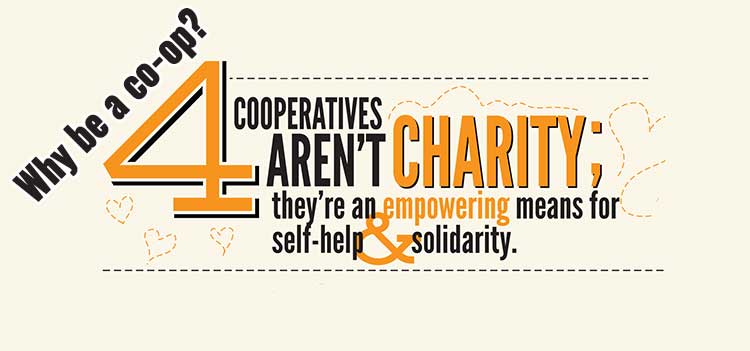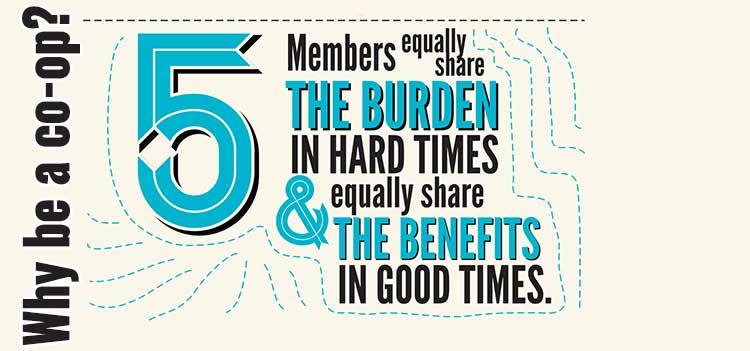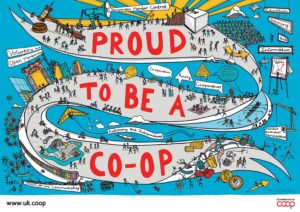What is a Co-operative?
Co-operatives are businesses that are democratically owned and controlled either by the people who work for the business or, in terms of membership co-operatives, the people who use it. They are distinguished from other forms of business in that the need to make profit is balanced by the interests of the community and the environment.
Different types of co-operatives:
Worker Co-operatives are businesses owned by the people who work in them.
Community Co-operatives are businesses set up to provide services, employment or training for a local neighbourhood or interest group.
A Co-operative Consortium is a group of individuals or businesses who get together for mutual benefit, to undertake joint marketing, bulk-buying, share premises or to do joint contact delivery.
Credit Unions provide a local and secure savings facility, low-cost loans and other financial services for their members.
Community Interest Companies (CICs) are limited companies with special additional features created for people who want to conduct business for community benefit. This is achieved by a ‘community interest test’ and an ‘asset lock’.
Co-operative Community Interest Companies have a co-operative set of rules.
Watch 'Co-operatives: Owned by our Members'
a film by Co-operatives UK funded by The Co-operative Bank



